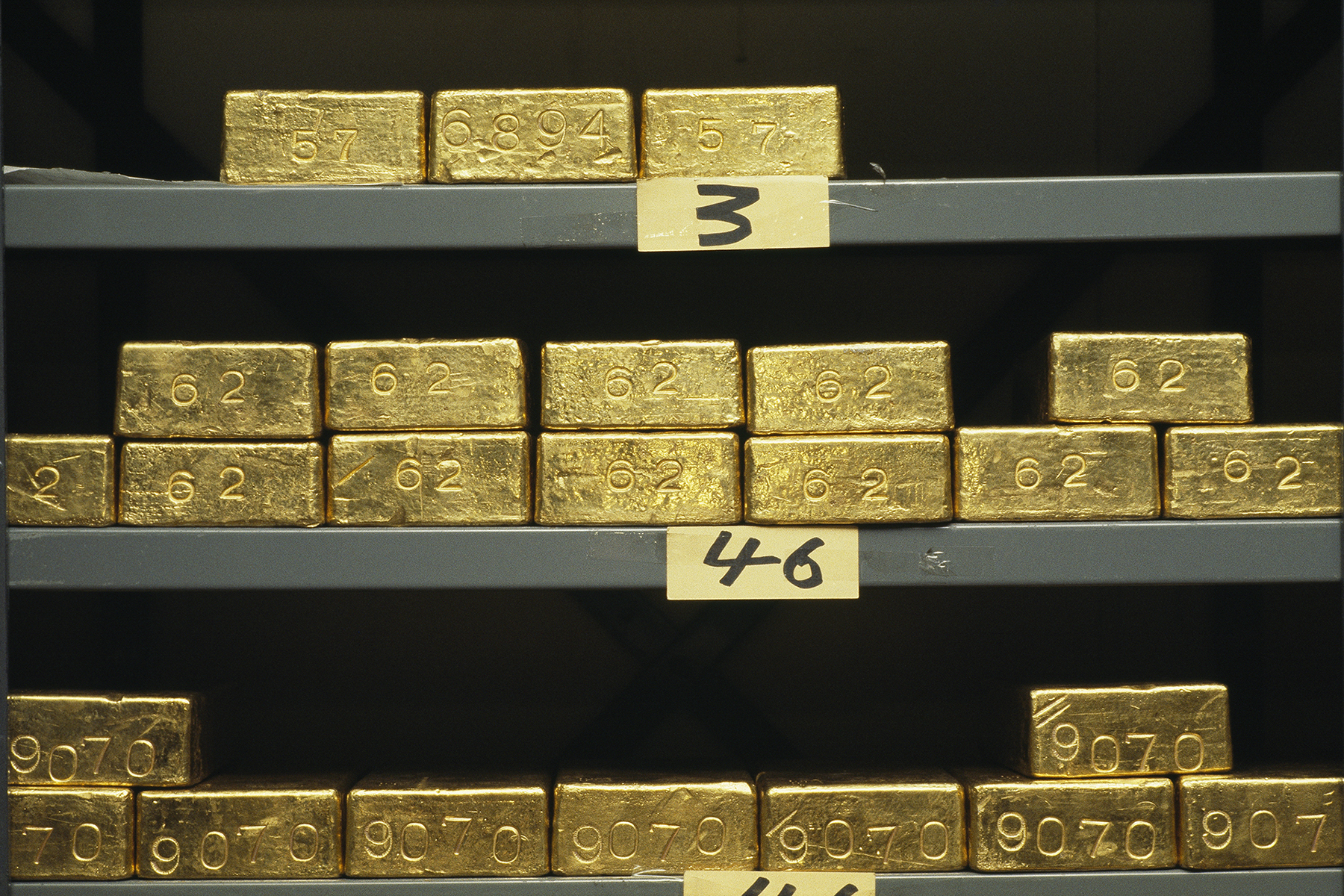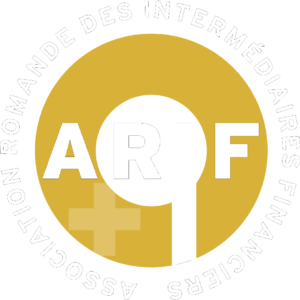Perumin 2025: Formalization of artisanal miners at the heart of the debate
The 37th edition of the Perumin mining convention, held from September 22 to 26, 2025, placed corporate social responsibility (CSR) issues and the situation of artisanal and small-scale miners (ASM) at the center of discussions. A strong call for formalization and social inclusion marked this edition, as the Peruvian mining sector seeks to reconcile economic development, environmental protection, and social justice.
A legal framework awaiting reform
At the closing ceremony, Peruvian President Dina Boluarte urged Congress to pass a new law on artisanal and small-scale mining (ASM), stressing the urgency of a framework “with social meaning.” She recalled that in August 2025, her government had submitted 11 key recommendations to the Energy and Mines Commission, aimed at formalizing the activities of artisanal miners, who are often marginalized and face precarious working conditions.
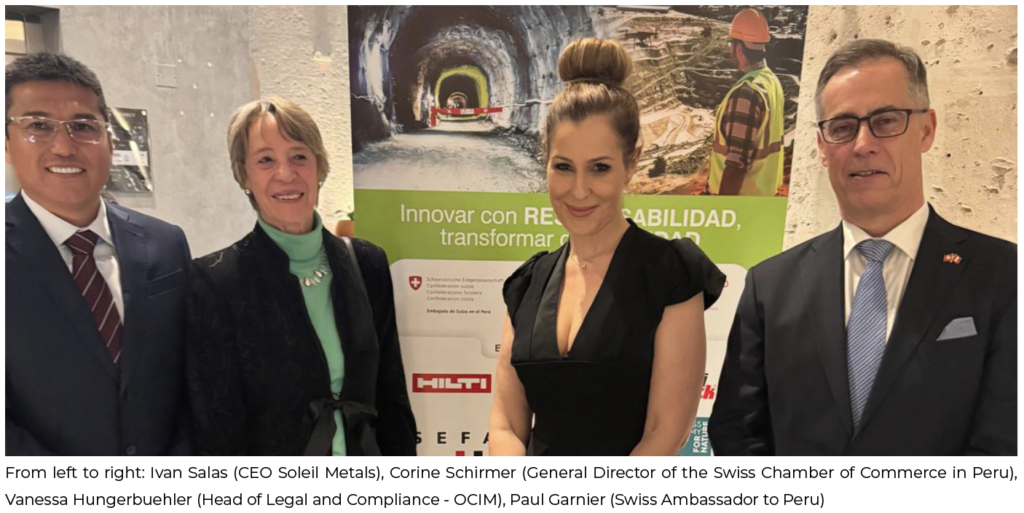
These proposals include:
- Extending the deadline for registration in the Comprehensive Mining Formalization Registry (Reinfo): currently, only 90,000 of the estimated 500,000 artisanal miners in Peru are registered, and barely 2,000 have completed the formalization process. Miners are asking for a two-year extension (until 2026) to comply with legal standards and finalize their integration into the formal sector.
- Easier access to financing: A recent study reveals that Peruvian artisanal miners need $344 million in financing to increase their production and formalize their operations. The development of appropriate financial mechanisms, such as preferential loans or public-private partnerships, is considered essential for their inclusion in the banking system and the formal market.
- The creation of traceable and responsible supply chains: Pioneering initiatives, such as the one led by Minera Yanaquihua SAC in partnership with the Swiss Better Gold Association, show that it is possible to create traceable international supply chains, offering artisanal miners technical support and commercial incentives while complying with environmental and social standards.
Major economic and social challenges
The figures presented at the convention illustrate the importance of the mining sector to the Peruvian economy: transfers to the regions from mining royalties and fees reached 8.9 billion soles at the end of July 2025, the second highest level ever recorded. In addition, employment in the sector grew by 9.8% in July, with female participation on the rise, reaching 20,687 jobs held by women.
However, this economic performance contrasts with the reality for artisanal miners, who are often excluded from the benefits of the formal sector. The debates highlighted the need to strengthen mechanisms to control and combat illegal mining, while integrating ASM into a circular and responsible economy.
Participants at Perumin 2025 emphasized the importance of promoting a “people-centered” mining model that encourages citizen participation, protects the environment, and ensures equitable benefits for local communities. “The mining sector of tomorrow will not be built in isolation, but through partnerships that diversify value chains and foster innovation,” said President Boluarte. Discussions also addressed the issue of security and the fight against organized crime, which is becoming more risky as prices rise.
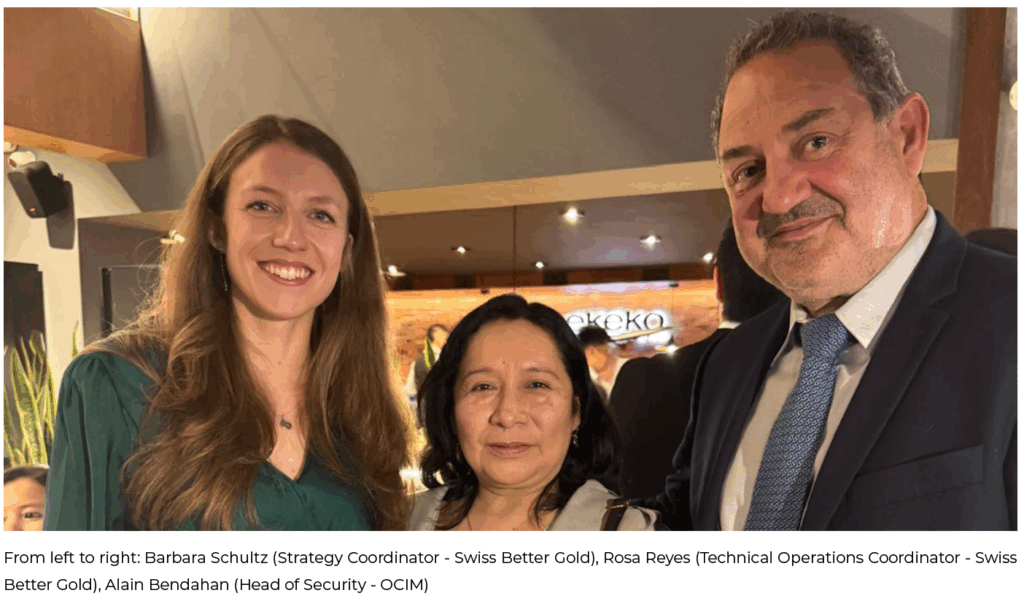
OCIM on the front line
Perumin 2025 confirmed that the formalization of artisanal miners and the integration of CSR issues are essential priorities for the Peruvian mining sector. With Congress set to adopt a new ASM law, industry players and civil society are waiting for concrete measures to turn these commitments into reality. Extending formalization deadlines, providing access to financing, and creating responsible supply chains are all ways to build a future in which the mining industry becomes a lever for sustainable development and social inclusion.
OCIM, which was present at the exhibition, is fully aligned with this approach through its two processing plants located in southern Peru. Committed to sourcing sustainable and responsible gold ore, the company helps artisanal miners comply with the requirements of the LBMA, the independent authority for precious metals. These requirements are wide-ranging and extend from the safety of ASM communities to their social protection, waste management, and the legality of the framework in which they operate. Furthermore, OCIM offers these communities a fair price and purchasing conditions that fairly reward them for their labor. All these measures make OCIM a leading player in the creation of a truly responsible gold value chain in Peru.


